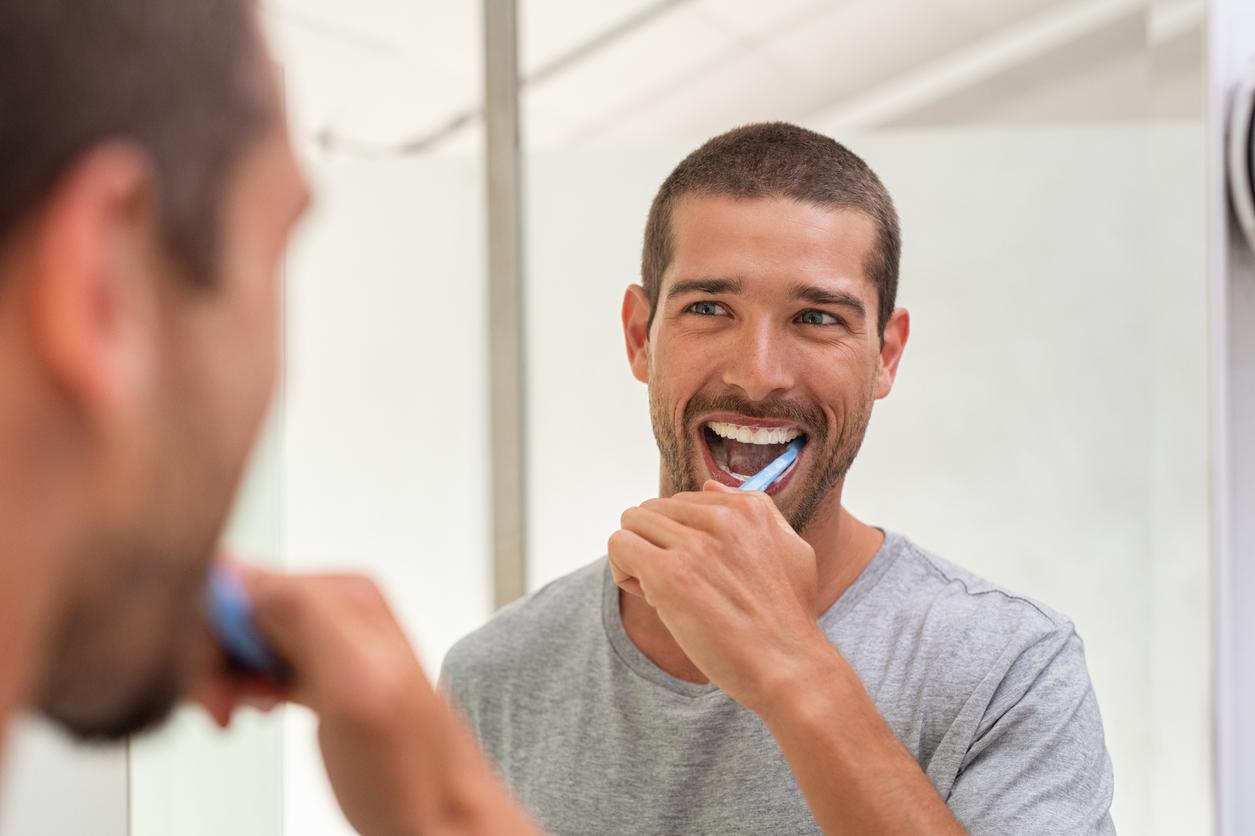Poor oral hygiene, that is, not brushing your teeth properly, can have negative consequences on our brain and promote cognitive decline.

- According to the 2014 Health Barometer, 71.1% of respondents say they brush their teeth twice a day, 25.1% once a day and 3.8% less often.
- 15.5% of participants have already had to give up dental care for financial reasons.
Three minutes is the recommended time for good toothbrushing. Ideally, this should be done three times a day, after each meal. This routine eliminates bacteria and protects his teeth but also his brain! Indeed, according to a prepublication that will be presented at the congress International Stroke Conference 2023which will take place from February 8 to 10, oral health has an impact on that of our neurons.
Oral hygiene, an easily modifiable risk factor
“If poor oral health affects brain health, i.e. the functional state of a person’s brain, we are now able to better understand it using neuroimaging tools like l magnetic resonance imaging (MRI), explains Cyprien Rivier, one of the authors. The study of oral health is particularly important because poor oral health is common but is an easily modifiable risk factor: anyone can improve it without it taking too much time and financial investment.“
During their research, the scientists studied the data of 40,000 adults with an average age of 57, without a history of cerebrovascular accident (CVA), but with a genetic predisposition to have certain dental problems such as cavities, teeth that will fall out and therefore, for some, dentures.
Teeth have an impact on the brain
Results: In the MRIs of the participants, there were markers of poor brain health such as the modification of white matter, present in hyperintensity, which can be a sign of impaired memory, balance and mobility. The researchers therefore believe that people genetically predisposed to cavities, to the loss of teeth – replaced or not by dentures – had a higher risk of developing certain brain diseases linked to cognitive decline.
Scientists note that two factors may contribute to this cognitive decline: the 24% increase in white matter hyperintensity in the brain and poorer fine brain architecture, particularly related to microstructural damage, in participants compared to their average age.
“Poor oral health [a des conséquences néfastes sur] brain health, so we need to be extra careful with our oral hygiene as it has repercussions far beyond the mouthdevelops Cyprien Rivier. Nevertheless, this study is preliminary and more evidence is needed – ideally from clinical trials – to confirm that, in the population, improving oral health will have a positive impact on brain health.“
The authors nevertheless point out that genetic predispositions to poor oral health have a much lower impact than certain other risk factors such as smoking.


















